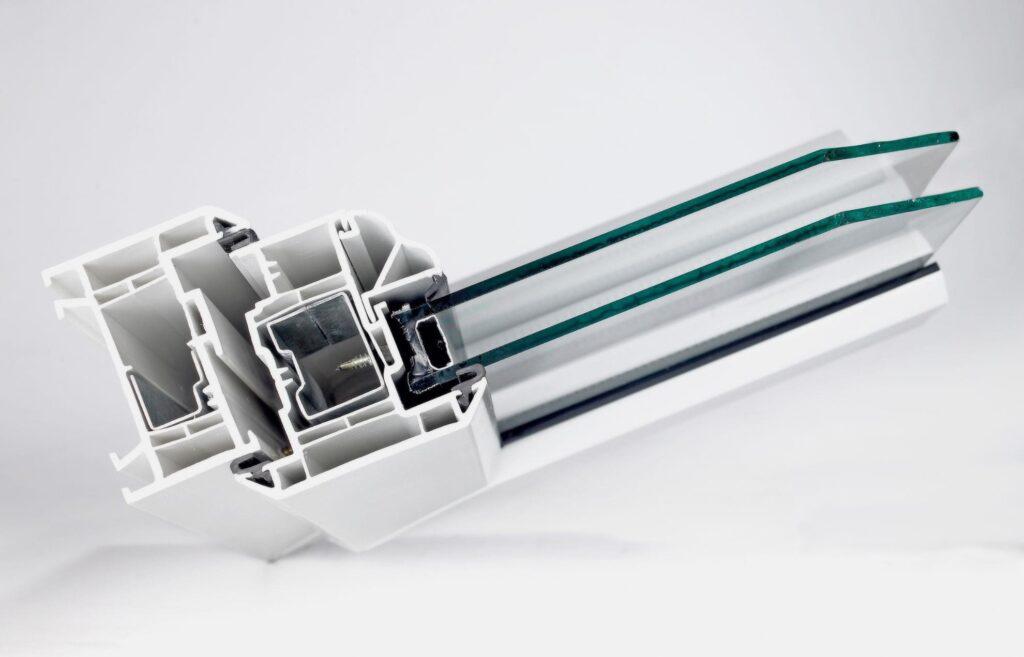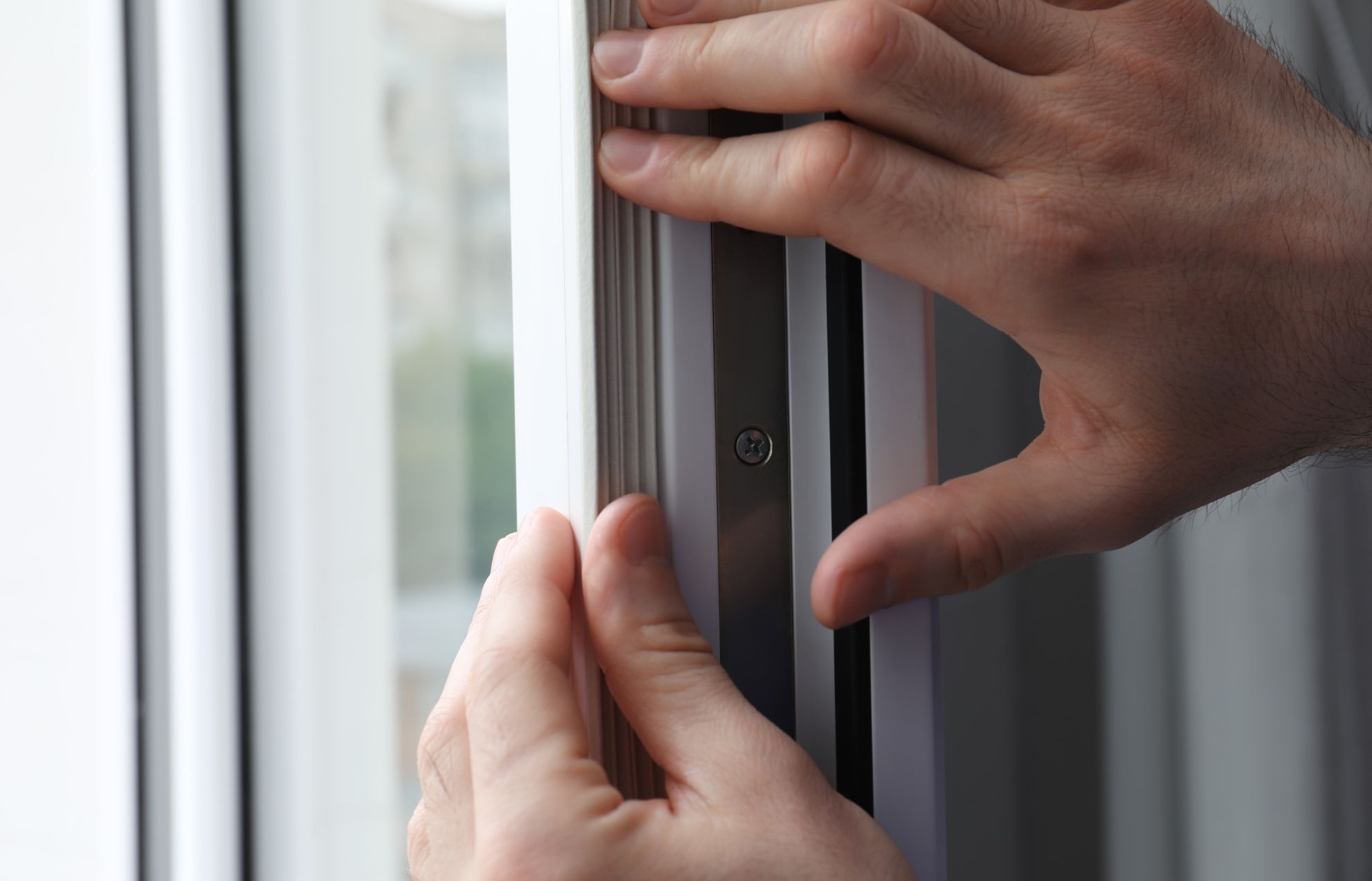What is Double Glazing?
What is double glazing?
Double glazing involves using two panes of glass in windows or doors, separated by a layer of air or gas. This design improves insulation by reducing heat transfer, keeping interiors warmer in cold weather and cooler in hot weather.
It enhances energy efficiency, reduces noise, improves security, and minimises condensation. Different types of double glazing exist, including variations in the gas used and additional coatings for better performance.

In this guide, we explore the benefits of double glazing, how it works, and why it’s a great choice for modern properties.
So, let’s jump in.
Benefits of Double Glazing
1. Enhanced Energy Efficiency
One of the most significant advantages of double glazing, also referred to as insulated glazing, is its remarkable energy efficiency. The air or gas trapped between the glass layers acts as an excellent thermal barrier, preventing heat loss during winters and heat gain during summers.
This feature helps maintain a comfortable indoor temperature and reduces the need for excessive heating or cooling, ultimately leading to lower energy bills.
2. Noise Reduction
Double glazing provides an effective solution for reducing external noise infiltration into your home or office. The two layers of glass and the insulating gap create a buffer that dampens sound waves, creating a quieter and more peaceful indoor environment.
Related: How Effective is Double Glazing at Reducing Noise?
3. Improved Security
Double glazed windows offer better security compared to their single-glazed counterparts. The toughened glass and robust frame structure make it significantly harder for intruders to break in, enhancing the safety of your property.
4. Condensation Reduction
Condensation can be a nuisance for many homeowners, leading to issues like mould growth and water damage. Double glazing significantly reduces condensation buildup on windows, maintaining a clearer view and reducing potential damage to window frames and surrounding areas.
Related: How to Fix Blown Double Glazing & Clear Misted Windows

5. Enhanced Aesthetics
Double glazed windows come in a wide range of designs and styles, allowing you to choose the perfect fit for your property. Whether you prefer traditional or contemporary aesthetics, double glazing can complement any architectural style while adding value to your property.
How Does Double Glazing Work?
Double glazing works by creating an effective thermal barrier between the indoor and outdoor environments. The two layers of glass trap a layer of air or gas, which acts as an insulating medium, preventing the transfer of heat or cold. The trapped air or gas inhibits heat conduction, reducing energy exchange through the window.
Types of Double Glazing
There are various types of double glazing available, each with its unique benefits and features:
1. uPVC Double Glazing
uPVC (unplasticised polyvinyl chloride) double glazing is a popular choice due to its durability, low maintenance requirements, and affordability. uPVC frames are highly energy-efficient, providing excellent thermal performance.
2. Aluminum Double Glazing
Aluminum double glazing is well-known for its sleek and modern appearance. It offers strength and durability, making it an ideal choice for larger windows and sliding doors.
3. Timber Double Glazing
Timber double glazing exudes natural beauty and elegance, enhancing the aesthetics of any property. Timber frames are eco-friendly and offer good insulation properties.
4. Composite Double Glazing
Composite combines the best features of different materials, such as uPVC, timber, and aluminium, to create composite doors with excellent thermal performance and enhanced durability.
Choosing the Right Double Glazing
Selecting the most suitable type of double glazing for your property depends on several factors, including:
1. Budget
Consider your budget and weigh it against the benefits offered by each type of double glazing type. While uPVC is more affordable, timber and aluminium may require a higher initial investment.
Related:
2. Aesthetic Preference
Choose a double glazing type that complements the architectural style of your property and aligns with your aesthetic preferences.
3. Energy Efficiency
Check the energy ratings of different double glazing options to ensure you select one that provides optimal thermal performance, thereby reducing energy consumption.
4. Maintenance Requirements
Consider the maintenance needs of each type of double glazing type. uPVC, for instance, requires minimal upkeep compared to timber, which may need periodic treatments.

Installation Process
The installation of windows and doors should always be carried out by experienced professionals to ensure proper fitting and functionality. The installation process typically involves the following steps:
- Assessment: A qualified surveyor will visit your property to assess the existing windows and take precise measurements.
- Quotation: You’ll receive a detailed quotation based on your requirements and preferences.
- Manufacturing: The double glazing units will be custom-made according to the measurements.
- Preparation: The existing windows will be removed, and the area will be prepared for the new installation.
- Installation: The double glazing units will be carefully fitted into the window or door frames, ensuring a secure and airtight fit.
- Finishing Touches: The installation team will make any necessary adjustments and add finishing touches to complete the process.
Related: How to Choose the Best Double Glazing Company
At Phair Windows, we are a leading double glazing installer in Leicestershire. Contact our experts for a free no-obligation quotation.
Maintenance Tips
To prolong the lifespan and optimise the performance of your double glazing, follow these maintenance tips:
- Regular Cleaning: Clean the glass and frames regularly to remove dirt and debris.
- Check Seals: Inspect the seals around the windows for any signs of damage or wear and tear. Replace them if necessary to maintain airtightness.
- Lubricate Hardware: Lubricate hinges, handles, and locking mechanisms to ensure smooth operation.
- Avoid Harsh Cleaners: Use mild cleaning solutions to avoid damaging the glass or frame surfaces.
Double Glazing Services From Phair Windows
Established in 1998, we are proud to be a market-leading home improvement company in Leicester and the surrounding Leicestershire areas.
If you’re looking for new windows, doors, porches, a roofline, a conservatory, roof lanterns, conservatory roof replacement, an orangery or any other home improvement services, get in touch with our friendly team.
Related Articles:
- Triple Glazing or Double Glazing: What’s the Difference?
- How to Choose Windows for Your Leicestershire Home
- What is Insulated Glazing or IGU?
- 5 Causes & Signs of Double Glazing Failure
- What is Double Glazing? How Does it Work?
- How Effective is Double Glazing at Reducing Noise?
- How to Fix Blown Double Glazing & Clear Misted Windows
- When Was Double Glazing Invented?
- How to Tell the Age of Double Glazing
- How to Choose the Best Double Glazing Company in Leicester
- Cost of Double Glazing a 3 Bed House UK
- How Long Does Double Glazing Last?
- 10 Double Glazed Windows Benefits
- Cost of Double Glazed Sash Windows
- Will New Double Glazed Windows Save Energy?












